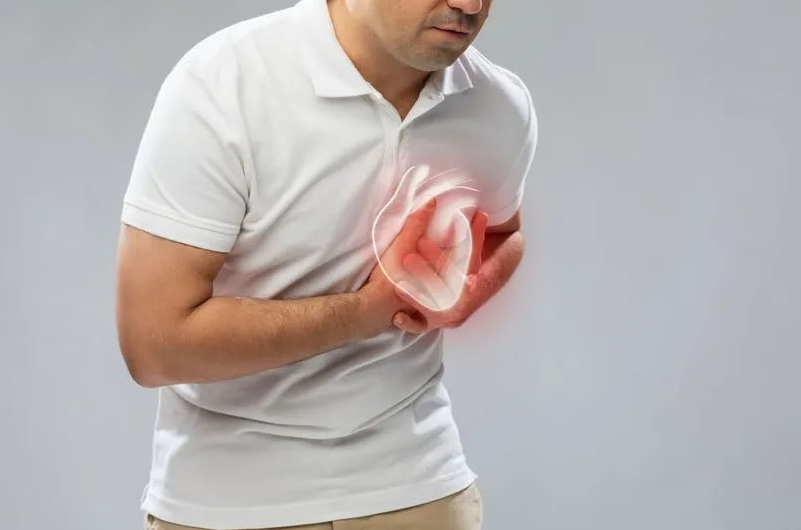
First, you get short of breath when you lie down. The patient has shortness of breath after lying down for a few minutes, which can be slightly relieved after sitting up.
At this time, it should be considered that the patient may have heart failure.
This is due to increased blood flow back to the heart while lying flat, resulting in increased airway resistance and shortness of breath in the patient. At this time, we should go to the cardiology department in time to rule out the possibility of pulmonary disease.
Two, a heavy chest like a stone. Is commonly referred to as "chest tightness", if you exclude emotional factors and other organs such as respiratory system function changes, at this time should consider the patient may have myocardial ischemia.
If the chest tightness persists for several minutes and cannot be relieved, or even severe chest pain occurs, angina pectoris or even acute myocardial infarction (myocardial infarction) is likely to occur. You should go to the nearest hospital as soon as possible, and if conditions permit, you can first take nitroglycerin tablets or quick-acting heart-saving pills.
Third, clothes and shoes suddenly become tight. Clothes and shoes become tight, and many people's first reaction may be that they are fat, but for patients with heart disease, it may indicate that heart function is impaired.
This is due to the cardiac output (the total amount of blood emitted by the ventricle per minute) blood decline, reduced kidney blood flow, reduced water excreted from the body, edema of the lower extremities, weight gain (especially an increase of more than 2 kg within 3 days), the need for timely medical treatment.
Fourth, lack of appetite. In addition to loss of appetite, patients with impaired heart function may also have abdominal distension, nausea and vomiting, constipation, epigastric pain and other symptoms, mostly due to right heart failure and gastrointestinal congestion.
Fifth, dizziness. Dizziness is more common in daily life, poor sleep, cervical spondylosis, hypertension and other common causes.
However, dizziness accompanied by significantly low blood pressure may be caused by impaired cardiac function, and serious cases may also appear fainting, cardiogenic shock and other life-threatening conditions, at this time should seek medical attention quickly.
Sixth, anxiety. Normal anxiety and anxiety are mostly related to emotions, and some people still feel palpitations, panic, and restlessness when they are emotionally stable, which should consider whether there is a heart disease.
Rapid heart rate and arrhythmia are common causes of panic and anxiety, which are mostly caused by functional or organic changes in the heart. Early intervention should be made to prevent further aggravation of symptoms.
Seventh, the cough does not stop. Most people will have a cold cough, fever and other symptoms, and the cough will not be very different during the day and night.
However, some people do not have fever and other cold-like symptoms, but cough, more than night, more obvious when lying down than sitting up, at this time to be alert to whether the heart function is damaged.
This may be caused by pulmonary congestion causing irritation of the airway, which can be accompanied by coughing white frothy sputum, sputum with bloodshot, and even pink frothy sputum during acute attacks.
Eighth, easy to fatigue or fatigue all day.
Many patients with heart disease begin with weakness or fatigue, mostly due to left heart function impairment, reduced cardiac output, and inability to meet peripheral tissue perfusion.
Ninth, oliguria and lower limb edema.
The occurrence of oliguria and lower limb edema, many people often think that there is a kidney problem.
In fact, impaired heart function can lead to insufficient blood flow to the kidneys or high venous pressure, often oliguria and edema of the lower extremities.
Long-term renal ischemia can lead to deterioration of renal function, proteinuria, increased creatinine, and the formation of a vicious cycle of aggravated heart failure.

